-
Profile: Dorothée - France's beloved TV icon and screen mum
Profile of the singer, actress and TV presenter who captivated millions of schoolchildren
-
Cheesy royalist or French national treasure?
Profile of Stéphane Bern, who made his name as an ardent royalist, but is now just as well known for his efforts to conserve France’s heritage
-
Briton in France organises commemoration for Allied POWs in World War Two
He presented certificates to French and British descendants of POWs at British Embassy event in Paris
UK's first female ambassador to France optimistic for new era
New British ambassador Menna Rawlings is the first woman in the role after 36 men since the time of the Duke of Wellington, who bought the building which is her official residence ( see below ). She spoke to The Connexion ’s Sarah Smith and Liv Rowland.
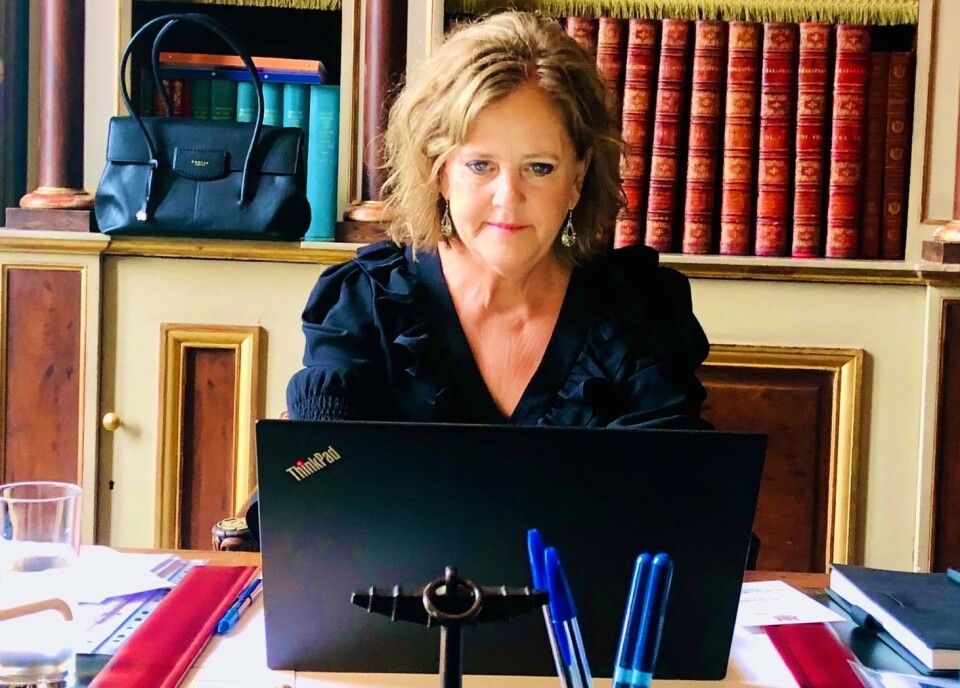
It must feel a big milestone to be the first ambassadrice to France?
Yes, it does. I feel the weight of history, of the Franco-British relationship, and of working in this incredible, historic residence, and the weight of all those men that came before. I’m talking to you from the library, created by Duff Cooper all those years ago, and it does all feel quite male. There’s a list here of the former ambassadors going back to Wellington.
On the other hand, being the first woman feels an honour and privilege and also a huge opportunity.
The time is right. I can bring a fresh perspective, not just because I’m a woman but because I’ve worked all over the world previously.
Ed [Llewellyn] was amazing and generous in the handover phase but it’s a different era now and I’m the first ambassadrice of the post-Brexit era. It’s a real opportunity to look forward.
The UK now has women in its ambassadorial roles to all G7 countries. Is it a deliberate policy?
The foreign office is pushing to be more representative of British society and part of that is having more visibility of women, including in senior roles. But some of it is just a question of evolution over time.
When I joined the foreign office in 1989 there were almost no women at the top; there were only two female ambassadors and the first with kids had only been appointed two years before, but it was a legacy of the society of the past, and the marriage bar which meant women when they got married, until 1973, couldn’t stay in the foreign service. Over time, recruitment has become much more diverse, and that’s percolating upwards. It’s like a dam, with all these women pushing at the wall, and then you spring a leak here and there and then suddenly this tidal wave of women comes through at the same time.
So it feels dramatic, but it’s been building up for a long time, and to have amazing female colleagues in place in Washington, Ottawa – all the G7 countries and many others – is very uplifting. I feel a lightness to know that I’m not alone and there are lots of women representing the country on the world stage.
Have you formally presented yourself to President Macron yet?
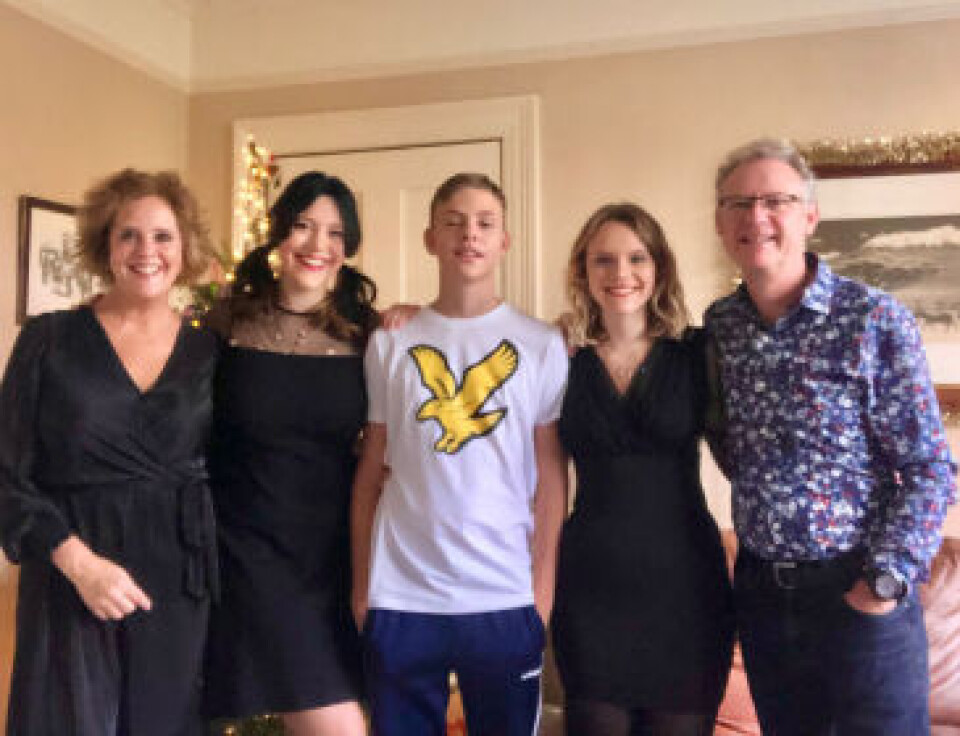
When you arrive, you see the chief of protocol at the French foreign ministry and give him a copy of your letters of credentials to the French government, so you can effectively start work.
In strict protocol terms, until I present my letters to the president, I’m not fully the ambassador, but the system here is very pragmatic.
They only do credential ceremonies twice a year so don’t want me sitting in the Residence just drinking tea for months. So I can do most things already though there are a very small number of things I can’t do, such as personally seeking to call on the president.
I am also here with my husband and son, and have two older girls back in the UK. We came together on a big family trip. On our first weekend, we cycled around Paris on Vélib’ bikes. We were awestruck by what a fantastic city it is. My son has started school, and we are looking forward to being part of the community, as well as being ambassadrice and whatever you call the husband of an ambassadrice.
Do you have a pet at the Residence?
We have a rescue dog called Cinders – we got her in the US when she was a year old and she’s now 13. She’s bamboozled by the Residence. We have a top-floor flat: To get down to the garden she has to use the lift. That has confused her, but otherwise she’s settling well.
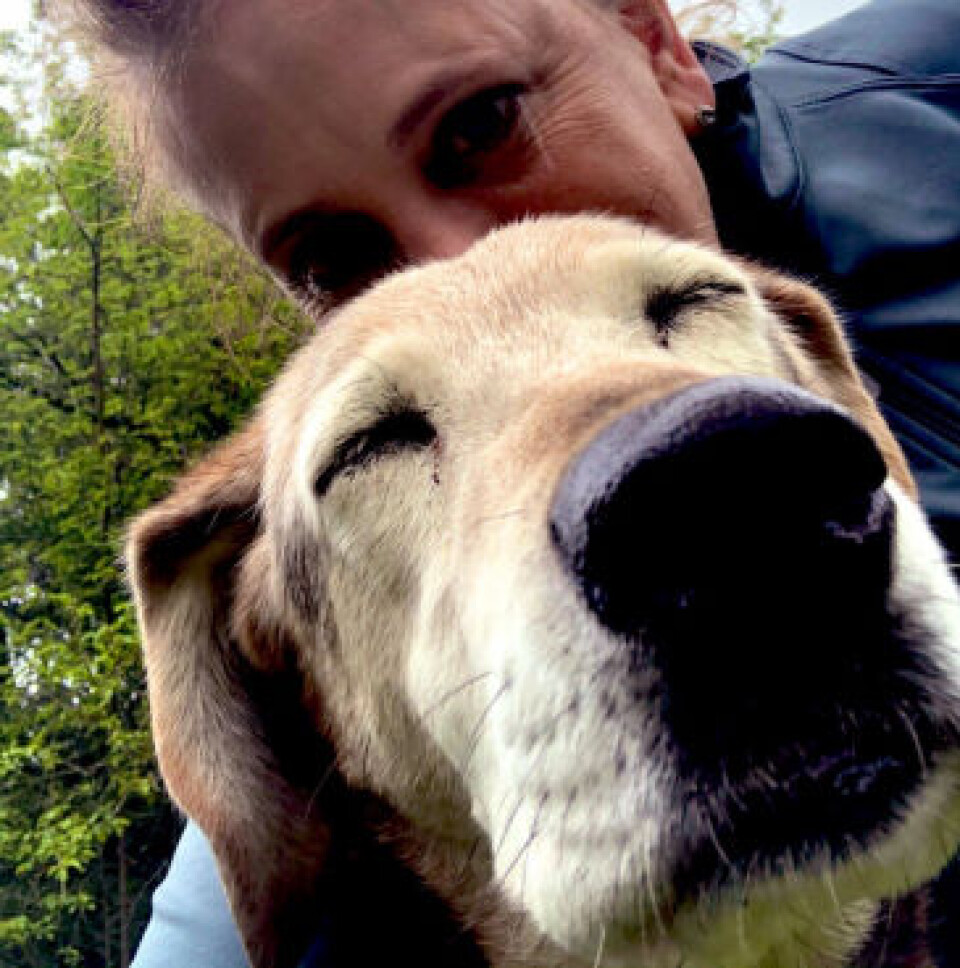
Is the library your main office?
It’s my main office in the residence, and Ed worked there a lot during the Covid pandemic, but we’ve had an amazing project going on in the Embassy next door to upgrade and modernise the office to be more open plan, and I’m based part of the week there too, to meet the teams, who are starting to come back after Covid.
The renovations have just come to fruition at the right time. It’s been a tough time, with everyone working from home, and not being able to use the Residence fully as the beating heart of the UK in Paris. It’s great now, with the appropriate gestes barrières, to bring people back.
In the Embassy we have around 300 people, including around 100 sent out from the UK, representing around 14 government departments, and the others are recruited locally, some French, some dual-nationals or bilingual Britons with French families. It’s an amazing, talented team.
How did you learn French?
At school. Then, when I joined the Foreign Office, I went to Brussels for two years and started at the European Commission as a stagiaire and got thrown into a French-speaking division. I dealt with the European Parliament and came to Strasbourg on the train once a month.
I’ve come back to France on lots of holidays. I love the outdoors, so have spent a lot of time in the Alps and in the south-west. I’ve walked in the Massif Central and visited Paris and Lille.
Most recently I was in Bordeaux for three weeks doing immersion language training, living with a lovely couple and going to the Alliance Française for French lessons every day. I had a wonderful time.
What key dates are coming up?
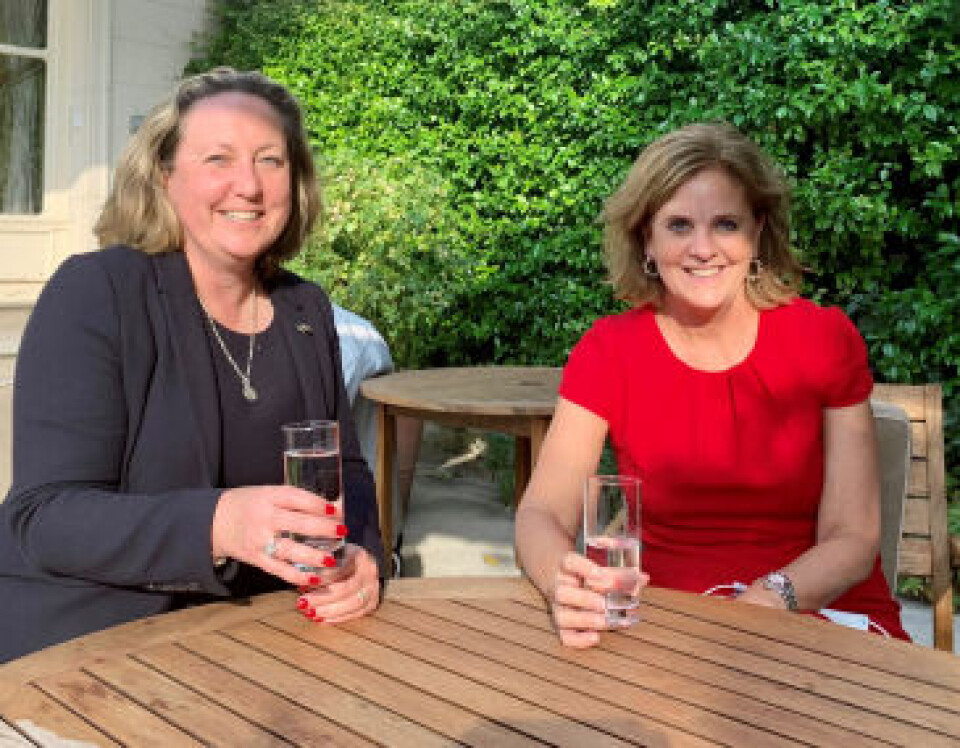
We’ve already had our first visit from a British minister, from Anne-Marie Trevelyan [then energy minister, now minster for international trade], and it’s great to see visits start again after Covid and our exit from the EU. We are re-opening the Residence to guests and have a James Bond launch party coming up.
The big thing in the autumn is the COP26 climate change summit in Glasgow, a great opportunity to work closely with French counterparts on the ambition and pace we need to decarbonise our economies.
We are partners on this – for example investment by EDF in the UK is important to the UK economy and we are doing a lot together on clean energy, such as wind farms. We also need to lobby in a coordinated way around the world.
I’m optimistic about the summit and really hope it delivers the results the whole world needs.
How do you feel about taking over post-Brexit?
I feel excited and have a grounded optimism. I’m here for four years and we have an opportunity to reshape the bilateral relationship. There are bright things on the horizon, including the Rugby World Cup in 2023 and Olympics in 2024. . I’m a great believer in sporting and cultural connections to keep countries close together.
But of course there are still challenges and we’ve had a fairly bumpy period due to different issues, and those around fishing or the Northern Ireland protocol are still to be resolved.
There are other challenges, including illegal migration on small boats across the Channel and the pressure it’s putting on the UK asylum system, and the risk to life. So, there are many issues to get my teeth into, but I believe in this relationship.
We have so many shared values and interests, so I’m optimistic we will see a real spirit of partnership in coming months and years.
Issuing residency cards to Britons seems to have mostly gone well?
Yes, there have been 162,000 applications [as of September 6] and I think, on the whole, it’s gone well, but if anyone hasn’t applied yet, please do so.
We’re in touch with the French as to what will happen from October, but flexibility has been there so far. We are seeking assurances about those who do not have their card yet, but our current advice would be to make sure you have your email application receipt [Editor's note: The deadline to hold a card has been extended since this interview].
There has been a lot of embassy outreach to the British community in France. Will that continue?
How we support Britons overseas, especially those who are vulnerable, is really important to me. We’ve had an intense period of engagement that was necessary through the evolution of Brexit but now I’m taking stock with the team as to how we move forward.
Covid forced more things online but do we continue with that? I very much want to connect with British nationals.
As I go around the country I am meeting with partner organisations, and am looking forward to hearing from more of them. It may not be exactly the same as before, but that’s because the situation has changed. We all have to adapt. But I won’t be hiding away, I have committed to get to every region in my first year.
The pandemic has been disruptive, especially to tourism. Are you looking forward to things getting more back to normal?
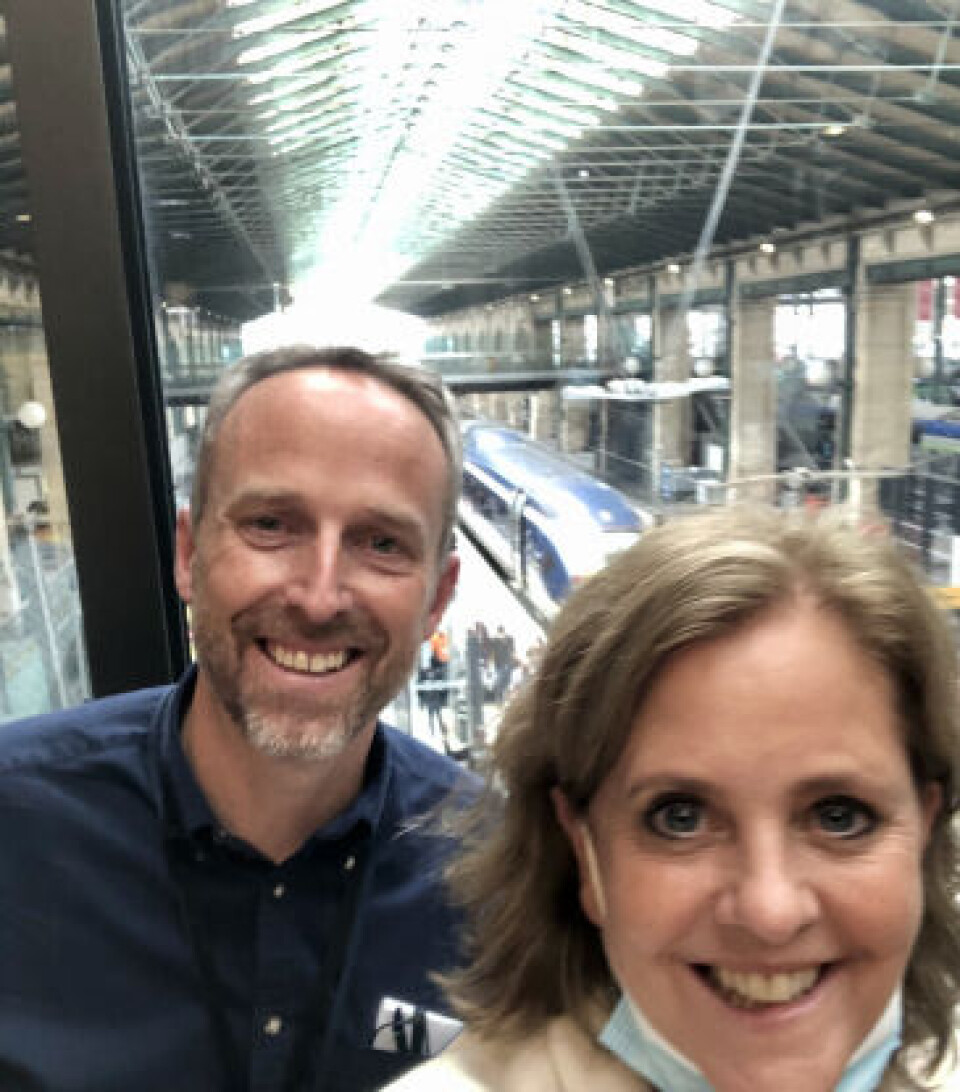
Definitely. It will be a ‘new normal’, but it’s great to see the border more open again.
In my first week I saw the juxtaposed controls at the Gare du Nord and met the Border Force team and Eurotunnel staff. There was life and energy and there more trains per day, but passenger traffic is still 35% of pre-Covid, so there is a hill to climb back up, but I’m keen we get there.
Having Brits here and French people in the UK is part of the essential emotional glue of this relationship.
Also important are the cultural connections between universities and think-tanks – a vibrant life that we’ve lost during Covid, along some of the challenges of EU exit. There are lots of opportunites to bring that back and I’m very excited by that.
There are new issues regarding moving to France or studying here, post-Brexit. Do you think things will be ironed out?
There’s a period of adjustment, and people need to get used to new requirements. But we have the new global scholarship Turing Scheme to support British students overseas, and the take-up has been strong with a high number of applications to French universities. I hope we will see more school exchanges on both sides – my first trip to France was aged 13 on an exchange to Mantes-la-Jolie [Yvelines], near Paris, and it was inspirational to me; I’d never travelled before. It’s what set me on the path to becoming a diplomat.
With regard to coming here, I know there are different processes to get used to, and it can be irritating; as a dog owner I had to jump through a few more hoops than before, for example, but it was still possible. You have to plan a bit more. But British exports to France are recovering very well, and I’m confident businesses and people will find a way. On exports, heavy machinery and aircraft are important from the UK to France, in the other direction a lot of food and drink. We’re massively invested in each other’s economic success.
Some key moments in Embassy’s history
THE DUKE of Wellington, the UK’s first ambassador after the Napoleonic wars, bought the Hôtel de Charost, former home of Napoleon’s sister, in 1814. It had been built in 1722 by Antoine Mazin, architect of Matignon and is on the same street as the Elysée palace, rue du Faubourg Saint-Honoré.
For many years it was also the Embassy, but latterly the main embassy offices moved next door.
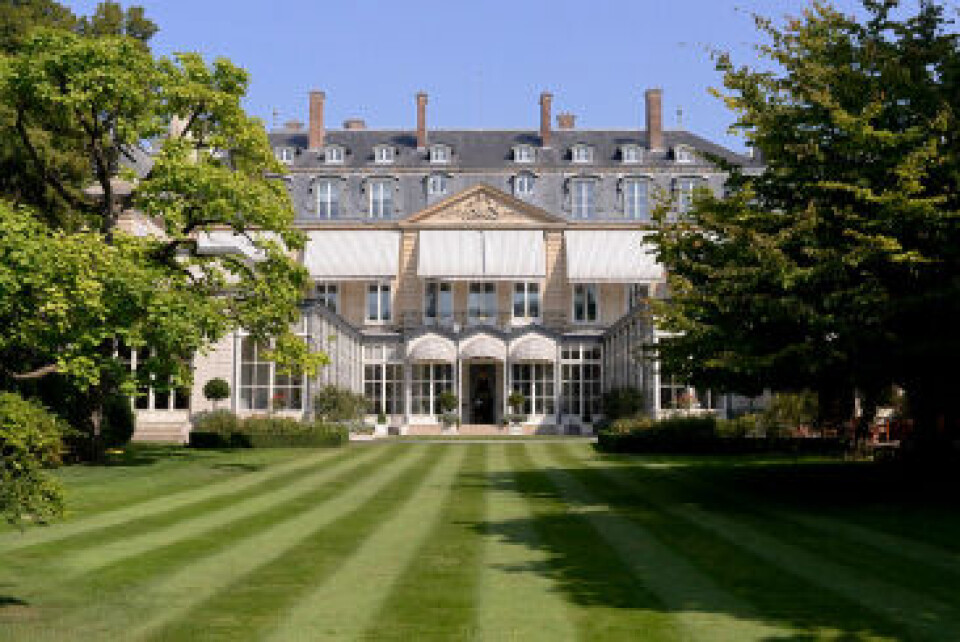
Other key moments in its history include:
1833 - Berlioz married at the Residence. Other famous figures who visited in the 19th century included writers Oscar Wilde, Marcel Proust and Madame de Staël.
1855 - Queen Victoria visited, the first big royal visit to France after centuries of warring
1871 - The Residence was caught in the crossfire of the siege of the Commune de Paris. A caretaker had been left in charge and managed to put out fires in the roof
1874 - Playwright Somerset Maugham was born in the Residence. Maugham's parents, who were well-connected, chose for him to be born there so that he could be born British, and not French. A few weeks later, American Jennie Jerome married Lord Randolph Churchill at the Residence. They become parents to Winston Churchill.
1903 - Edward VII visited and put in the groundwork for the following year’s Entente Cordiale
1938 - George VI and Queen Elizabeth visited before the war
1944 - Alfred Duff Cooper reopens the Embassy as ambassador after closure during the occupation of Paris. He creates the Residence’s Duff Cooper Library, donating his own books.
1948/57/72/92/2004/14 – state visits by Princess, and then
Queen, Elizabeth
2021 - Menna Rawlings becomes first female ambassador
Read more
Residence opens for Journées du Patrimoine
First female UK ambassador to France begins work at Wellington's desk
British ambassador: Thank you, as I move on
New UK ambassador to France means women hold posts in both countries
























